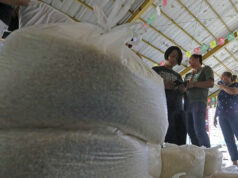ALI cuts 37% of emissions in 2017
AYALA LAND, Inc. (ALI) reported it has reduced controllable emissions from its commercial properties by 92,234 tons of carbon dioxide equivalent (t-CO2e) in 2017, keeping the property giant on track to achieve carbon neutrality by 2022.
In a statement, ALI said the figure represents 37% of its “business-as-usual” emissions “or the equivalent carbon dioxide emissions it would have released had it not undertaken carbon reduction and offset initiatives.”
“To contribute to our carbon neutrality target, a number of ALI’s office buildings and malls have already shifted to renewable energy through power purchase agreements. Commercial developments such as the UP AyalaLand Technohub, the Bonifacio One Technology Tower, and the Makati Stock Exchange building, and malls including BHS Central and Harbor Point, have all shifted to clean energy and account for a significant decrease in emissions for the year,” ALI Sustainability Manager Anna Maria M. Gonzales was quoted as saying in a statement.
The property arm of Ayala Corp. has set aside 450 hectares (has) of its land bank to carbon forests which are protected through assisted natural regeneration (ANR). These carbon forests are located in Lio, Palawan (50 has.); Sicogon, Iloilo (148 has.); Alaminos, Laguna (133 has.); Kan-Irag, Cebu (63 has.) and Talomo, Davao City (54 has.)
“These forest sites’ stored carbon was measured and hold approximately 68,000 metric tons of CO2e. Through ANR, a combination of practices that focus on protection, nurturing and enhancement planting of native species, these sites’ early second growth forests and initial succession areas are expected to hold more carbon in the next years,” ALI said.
Aside from carbon forests, ALI has committed to providing passively cooled spaces in its developments, and shifting to renewable energy.
The real estate company expects the usage of renewable energy in its malls, offices and hotels to increase to 80% from the current 10%.
ALI was the only Philippine company included in The Sustainability Yearbook 2018, which is considered the world’s most comprehensive publication on corporate sustainability.



